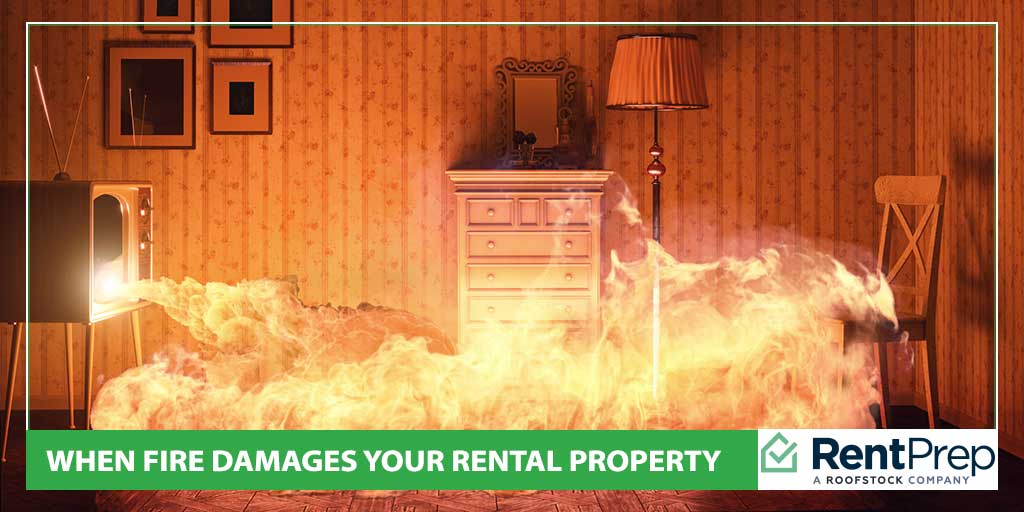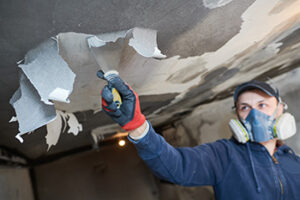 Your Rental Property" width="640" height="320" />
Your Rental Property" width="640" height="320" /> Your Rental Property" width="640" height="320" />
Your Rental Property" width="640" height="320" />
It’s one of the worst things that can happen to property you own—a fire destroys some or all of the structure. Going through the aftermath of a fire can be devastating, but landlords need to prepare for any event to happen. Being well informed and educated on what to do after a fire at a rental property can ease the burdens that you will face as you try to get your rental property restored and back on the market.
Let’s review what landlords need to do immediately after the fire, the day after the fire and in the days following the fire.
• Ask a fire officer for a contact number and name for future communications.
• Contact your insurance agent immediately to report the fire and to start the process of filing a claim.
• Get a list of recommended fire damage restoration companies from your insurance company and start calling them to set up an appointment for the next day or two.
• Communicate with your tenant about their safety and well-being, and make note of any sort of details or confessions from the tenant about how the fire got started or what they noticed in the minutes before the fire.
• Make sure your tenants have contacted their own insurance company to line up temporary housing. If they don’t have renter’s insurance, the American Red Cross provides for emergency needs like essential items and temporary housing.
• Ask the fire officer when you and the tenant can walk through the property with them to assess damage and for the tenant to collect any personal belongings. Never enter the property until you get an all clear from the fire department.

• Take pictures of all damage to every structure.
• Prepare a written inventory of the destroyed or damaged property that should include anything structural, like the home itself or any structures on the property like a pool house or shed.
• Prepare a detailed list, with models and types, of any appliances that were damaged, like a refrigerator or dishwasher.
• Add structural details to the list that covers each room, like cabinets and counter tops.
• Collect photos, video and any other information related to the structure before the fire.
• Get a copy of the fire report from the fire department, which details the probable cause of the fire.
• Never remove debris or start to fix up the damage to the property before meeting with the fire damage restoration company.
• Secure the property as is reasonable, such as locking doors and windows, or covering openings with plastic sheeting.
Once the initial shock of the fire has passed, many tenants and landlords enter into uncharted territory as to who is responsible for paying the repair and restoration bills from fire damages. Here are some of the more common questions:
• If the fire was the tenant’s fault, do they have to pay for fixing all of it?
• Where do landlords find a reputable fire damage restoration company?
• Who pays the landlord’s insurance deductible?
• What about if the fire was due to landlord negligence?
• Does the landlord have to pay the tenant to replace the cost of lost possessions?
• Can landlords do fire damages repair themselves?
• Do landlords have to pay for tenants to live elsewhere?
• What about the lease agreement now?
All these questions and more will definitely factor into the way that landlords and tenants move forward after such a devastating event.

Landlords are ultimately responsible for the cost of fixing fire damages to the property itself as it relates to the structure and home systems like electrical and plumbing. However, the responsibility for repairs and restoration doesn’t always mean landlords are necessarily personally financially responsible. The landlord’s homeowner’s policy should cover most or all of the repairs.
The landlord’s insurance is not responsible for, nor will they, pay to repair or replace a tenant’s lost property. The tenant’s own renter’s insurance is in place to cover the loss of possessions like furniture, clothes and belongings. If the tenant doesn’t have renter’s insurance, they must unfortunately suffer the consequences of partial or total loss. If the tenant can prove in court that the landlord was somehow responsible through negligence, they may be able to recoup the cost of lost possessions and additional expenses in arranging for another place to live.
If the fire is the fault of the tenant or the tenant’s guests, then they must be responsible for the cost of repairing the damages. However, even if the fire is clearly the fault of the tenant, the landlord still needs to make arrangements via their homeowner’s policy. The landlord’s insurance company will generally seek out the tenant’s insurance company for compensation if there is a liability portion of the policy. The insurance company can work with the other company to get compensated up to the liability limit for fire damages.
Another scenario is that the insurance company seeks out the tenant directly for compensation if they don’t carry renter’s insurance. Often, wise landlords have included language in the lease agreement that in the event of a fire caused by the tenant, the tenant is responsible for at least paying the deductible for the landlord’s insurance, and then going on a case by case basis for recouping the cost of fire damages from there.
Listen into our podcast episode 123 where we discuss how two renters lost their lives due to a fire.
We publish new podcast episodes every Thursday on our “RentPrep For Landlords” podcast.
You can subscribe using any of the links below.
Landlords must provide a rental property that is deemed to be in a habitable condition according to the codes and laws of the state and municipality where the property is located. The fire restoration experts can provide documentation for you when the property is ready to be occupied again.
It’s important for you to protect your investment and get the house fire restoration process started as soon as possible to take care of fire damages. Smoke, water and fire damage can cause a structure to weaken over a short time, and even things like mold and mildew can start growing within a day or so after a fire. You should never attempt to restore a fire-damaged rental property yourself because it requires a certain level of expertise and equipment to ensure that everything is put back into a safe state and meets the minimum safety codes. It also ensures that there are no hidden issues that may cause problems down the road. A professional fire restoration crew is the only way to go.
In summary, it’s a good idea to review all the things landlords need to do in the aftermath of a fire well before anything actually happens. In the moments after a fire in the rental property, you can go from panic and stress to pushing forward with a professional and businesslike manner during all the crazy ups and downs that are yet to come.
Our tenant screening services have been trusted by over 100,000 landlords & property managers since 2007. SEE OUR PACKAGES
Starting at just $21.00!